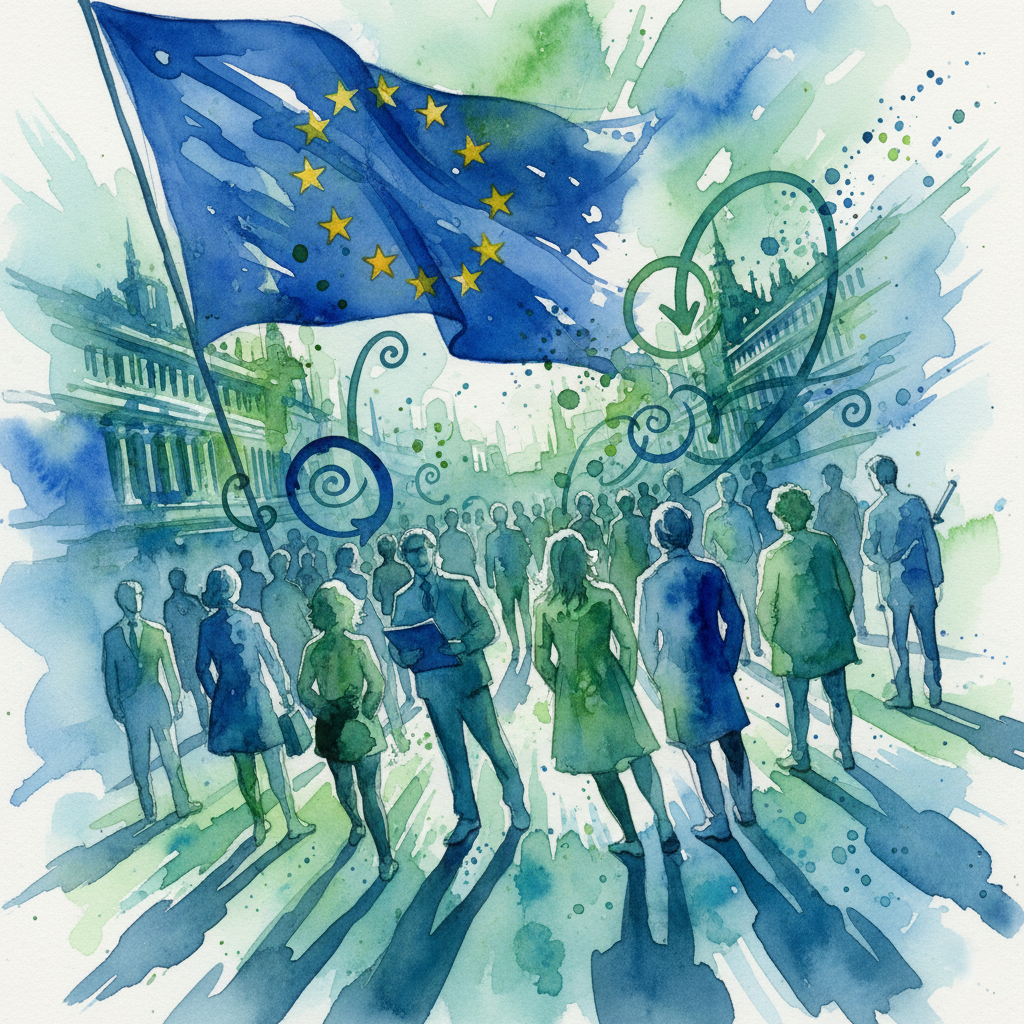· 5 min read
Bridging the Democratic Gap: How the EU's Consultation System Fails Citizens
Is the EU really listening? How a flawed consultation system favors professional lobbyists and what we're doing to help citizens be heard

The European Commission is legally required to listen. The cornerstone of better regulation in the EU is built on the principle of consulting stakeholders before new laws are drafted. To meet this obligation, the Commission created the ‘Have Your Say’ portal. In theory, it’s a digital doorway to democracy. In practice, it’s a barred gate that keeps ordinary citizens out.
To even peek at the questions of a consultation, you must first create an account. This isn’t a one-click affair; it typically involves email verification, CAPTCHAs, or even an official digital ID. For a professional lobbyist, whose job it is to navigate this system, this is a minor, one-time hurdle. For a citizen who just wants to share their opinion on something they care about, it’s a significant barrier. The result? A process dominated by paid professionals, where the very people the laws are meant to serve are systematically deterred from participating.
This is more than an inconvenience; it’s a profound failure that deepens the democratic deficit. Statistics show that while 70% of EU internet users interact with government sites for services, almost no one participate to these consultations. It’s not uncommon to have zero or handful of comments for consultations open for weeks and months. This isn’t because people don’t care but because the system is built for them to fail. When consultations are dominated by industry voices, the resulting legislation appears to serve special interests over the public good, further eroding trust in the very institutions designed to protect it.
What was meant to be a tool for connection has become an exercise in performative listening, widening the gap between Brussels and its citizens and weakening the European ideal. This is not entirely accidental. Institutions have a natural tendency to shield themselves from public scrutiny when given the chance. A telling example is the European Commission’s habit of launching consultations on controversial topics on a Friday evening in the middle of the summer, open for only a few short weeks. This is a classic tactic of ‘notice and comment’ bureaucracy, designed to minimize public engagement and ensure that only the most determined, well-resourced stakeholders—typically professional lobbyists—can possibly respond.
But the plans were on display…”
“On display? I eventually had to go down to the cellar to find them.”
“That’s the display department.”
“With a flashlight.”
“Ah, well, the lights had probably gone.”
“So had the stairs.”
“But look, you found the notice, didn’t you?”
“Yes,” said Arthur, “yes I did. It was on display in the bottom of a locked filing cabinet stuck in a disused lavatory with a sign on the door saying ‘Beware of the Leopard.’”
— Douglas Adams, The Hitchhiker’s Guide to the Galaxy and alleged inspiration for ‘the have your say’ design
The Solution already exists: Empower Civil Society
There is a way to fix this. The same dynamic that empowers industry lobbyists -coordination and amplification- can be harnessed for the public good through Civil Society Organisations (NGOs and Trade Unions). These groups, have a closer proximity to their members and supporters than the institutions. They are the natural bridge between complex legislation and the people it affects.
The European Commission should not see this as a threat, but as an opportunity. Instead of forcing every individual through a broken system, the EC should help CSOs act as conduits for public opinion.
A concrete proposal: Open the gates with an API
How? By modernizing the ‘Have Your Say’ portal with a dedicated API (Application Programming Interface) for registered civil society organisations.
This would allow an NGO to embed a user-friendly version of a consultation directly on its own website, where its supporters already are. They can explain the context, simplify the jargon, and make providing feedback accessible. Then, with the supporter’s consent, the NGO could submit these responses directly to the Commission’s system through the API and, as importantly, do the follow up work of informing them of he result through all the legislative process, that usually take years.
This approach has a dual benefit. First, it drastically improves usability for the citizen. Second, it allows organisations to -with clear permission- keep supporters informed about the progress of the legislation they contributed to, closing the feedback loop and showing that their voice truly matters.
Our Workaround and our offer
We are not waiting for the Commission to act. We have already developed a method to help citizens be heard. We gather feedback through our own accessible platforms and then post it to the ‘Have Your Say’ system on their behalf. It’s a labor-intensive and expensive workaround, but it proves that the desire to participate is there when the barriers are removed.
All this isn’t necessary. We have a design for a secure, transparent API ready and are available to discuss it with the European Commission. We want to help build a more inclusive digital democracy, not just critique the current one.
Until that day comes, we will continue our work, supporting citizens and NGOs to ensure that even a flawed system doesn’t silence the public voice. The European project is too important to be left to a closed conversation. It’s time to truly let everyone have their say.



